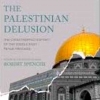What does it mean when Indonesia says no to G-7 and yes to Russia?
That question has echoed across diplomatic circles after President Prabowo Subianto chose to skip the prestigious G-7 Outreach Summit in Italy and instead flew to Kazan, Russia, for the BRICS+ meeting. Days later, he stood side by side with President Vladimir Putin in St. Petersburg, discussing future trade deals and "deepening bilateral ties." For a country known for its long-standing non-aligned position, this move is more than symbolic. It's strategic, but also, controversial.
According to The Straits Times, the gesture was read by some observers as a "sign of sovereignty." Dr. Hendra Manurung from Indonesia Defence University framed it directly: "This is a sovereignty signal, that Indonesia does not want to be tied to one power."
That same week, when The Straits Times called Prabowo's move a "sign of sovereignty," Reuters ran the headline: "Putin Meets Indonesia's Prabowo in Russia Bid to Deepen Ties."
But for others, the optics of Prabowo cozying up to Moscow especially amid the ongoing war in Ukraine raised red flags. Can Indonesia still claim neutrality if it's seen standing closer to one side of a global divide?
Between Moscow and the Middle
For decades, Indonesia's foreign policy has been anchored on the doctrine of bebas aktif---free and active. This principle, rooted in the legacy of the Non-Aligned Movement, emphasizes independence in decision-making while actively participating in global affairs and Prabowo has remained loyal to that line in public.
"Our people do not want to be involved in any alliance or bloc, especially military ones. We are neutral." His speech at the Antalya Diplomacy Forum (ADF) 2025. He also echoed a classic Indonesian diplomatic mantra: "A thousand friends are too few; one enemy is too many." That same line reappeared in his address at the St. Petersburg International Economic Forum.
However, it's the actions not just words that are drawing scrutiny.
Not long after attending the BRICS Summit, Indonesia announced it would pursue a Free Trade Agreement with the Russia-led Eurasian Economic Union (EAEU), according to Reuters (June 20, 2025). This came after months of signaling stronger ties through Indonesia's newly granted full membership in BRICS, something that even President Jokowi had hesitated to commit to during his presidency due to Western sensitivities.
The analysts warned earlier this year, that this kind of policy shift could blur Indonesia's neutral image. "Indonesia must ensure that the risks embedded in its recent foreign decisions are navigated and mitigated carefully to best serve its national interests amidst intense geopolitical competition," wrote Muhammad Dafa Ramadhan in the ISAFIS Gazette (February 2025).







